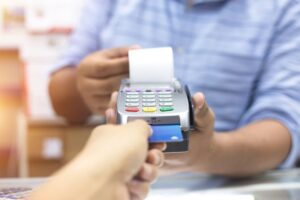Forex Trading Scam Netherlands: What You Need to Know Before Investing in the Foreign Exchange Market
Introduction:
The foreign exchange market, also known as Forex, is a decentralized global market where currencies are bought and sold. With its immense popularity and potential for high returns, this trading has attracted numerous investors worldwide, including those in the Netherlands. However, as with any investment opportunity, there are risks involved, and unfortunately, FX scams have emerged, targeting unsuspecting individuals. This article aims to provide you with a comprehensive understanding of forex trading scam in the Netherlands and equip you with the necessary knowledge to protect yourself from falling victim to these fraudulent schemes.
I. Understanding Forex Trading:
It involves the buying and selling of currencies to make a profit from fluctuations in their exchange rates. The market operates 24 hours a day, five days a week, and trades over $6 trillion daily, making it the largest and most liquid financial market globally. It offers a wide range of investment opportunities, from major currency pairs like EUR/USD to exotic currency pairs involving emerging market economies.
II. Common FX Scams in the Netherlands:
- Fake Forex Brokers: One prevalent scam in the Forex market involves fraudulent brokers. These individuals or companies pose as legitimate Forex brokers, promising high returns and attractive trading conditions. They may use aggressive marketing tactics, such as cold-calling or sending unsolicited emails, to lure potential investors. Once investors deposit their funds, the scammers disappear or manipulate trades to generate losses, leaving investors with substantial financial losses.
- Signal Sellers: Signal sellers claim to provide accurate trading signals or automated trading systems that guarantee profits. They often advertise their services through social media platforms, promising quick and effortless wealth. However, many of these signal sellers are fraudulent and provide misleading or false information. Investors who rely on these signals may end up making poor trading decisions, resulting in significant financial losses.
- Ponzi and Pyramid Schemes: Some scammers set up Ponzi or pyramid schemes disguised as FX trading operations. They promise extraordinary returns and encourage investors to recruit more people into the scheme. Initially, investors may receive profits, which are often paid using funds from new investors. However, these schemes are unsustainable and eventually collapse, causing substantial financial harm to those involved.
III. How to Protect Yourself from FX Trading Deceptions:
- Research and Due Diligence: Before investing, conduct thorough research on the company or individual offering the investment. Check if they are registered with the appropriate regulatory authorities, such as the Netherlands Authority for the Financial Markets (AFM) or the European Securities and Markets Authority (ESMA). Look for reviews and feedback from other investors to gauge their legitimacy and reliability.
- Be Skeptical of Unrealistic Promises: If an investment opportunity promises guaranteed high returns with little to no risk, it is likely too good to be true. Exercise caution and skepticism when confronted with such claims. Remember that this currency exchange trading, like any other form of investment, carries inherent risks, and profitability depends on various factors, including market conditions and the trader’s skill and knowledge.
- Use Regulated Brokers: To minimize the risk of falling victim to foreign exchange trading deceptions, only with reputable and regulated brokers. Regulated brokers are subject to oversight by financial authorities and are required to adhere to strict guidelines, ensuring a higher level of investor protection. Check if the broker is registered with regulatory bodies such as AFM or ESMA and verify their license details.
- Educate Yourself: Acquire a solid understanding of the market before investing your hard-earned money. Educate yourself on fundamental and technical analysis, risk management strategies, and trading psychology. Numerous online resources, educational courses, and demo accounts are available to help you develop your trading skills. By equipping yourself with knowledge, you can make informed decisions and identify potential scams.
- Be Wary of Unsolicited Communication: Exercise caution when receiving unsolicited calls, emails, or social media messages promoting foreign currency trading opportunities. Legitimate brokers and financial institutions typically do not engage in aggressive marketing tactics. Be especially vigilant if the communication originates from unfamiliar or overseas entities. Do not provide personal information or send money without verifying the legitimacy of the company or individual.
IV. How do Investigation Services help you in detecting Forex fraudsters?
Investigation services specialize in tracking down and exposing Forex fraudsters. They employ a team of experienced professionals, including investigators, legal experts, and financial analysts, who work together to gather evidence and build cases against the hoaxers. These services offer the following benefits to victims:
- Investigation and Evidence Collection: They conduct in-depth investigations to gather evidence against swindlers. They analyze trading records, financial transactions, communication records, and any other relevant information to build a strong case. By employing their expertise, these services can identify the individuals or entities responsible for the scam and uncover their fraudulent activities.
- Legal Assistance: Navigating the legal complexities associated with these swindles can be challenging for victims. Investigators provide legal assistance and guidance throughout the recovery process. They work closely with legal professionals who are well-versed in financial fraud cases, ensuring that victims’ rights are protected and appropriate legal actions are taken against the tricksters.
- Recovery of Lost Funds: One of the primary objectives of investigation agencies is to help victims recover their lost funds. These services work diligently to trace and freeze the swindlers’ assets and initiate legal proceedings to reclaim the stolen money. By leveraging their knowledge of financial systems and legal frameworks, they increase the chances of successful fund recovery for victims.
4.Liaison with Authorities: These fraud detection agencies have established relationships with law enforcement agencies, regulatory bodies, and financial institutions. They act as intermediaries between victims and these entities, facilitating communication and cooperation. By working closely with authorities, they ensure that the scam is reported and the perpetrators are brought to justice.
Conclusion:
While Foreign exchange trading can be a lucrative investment opportunity, it is crucial to be aware of the potential scams that exist in the market. Understanding the forex trading fraud and taking preventive measures will significantly reduce the risk of falling victim to fraudulent schemes. Conduct thorough research, trade with regulated brokers, and educate yourself about the intricacies of the trade. By following these guidelines, you can navigate the Forex market safely and make informed investment decisions. Remember, the key to successful trading lies in knowledge, diligence, and vigilance.




